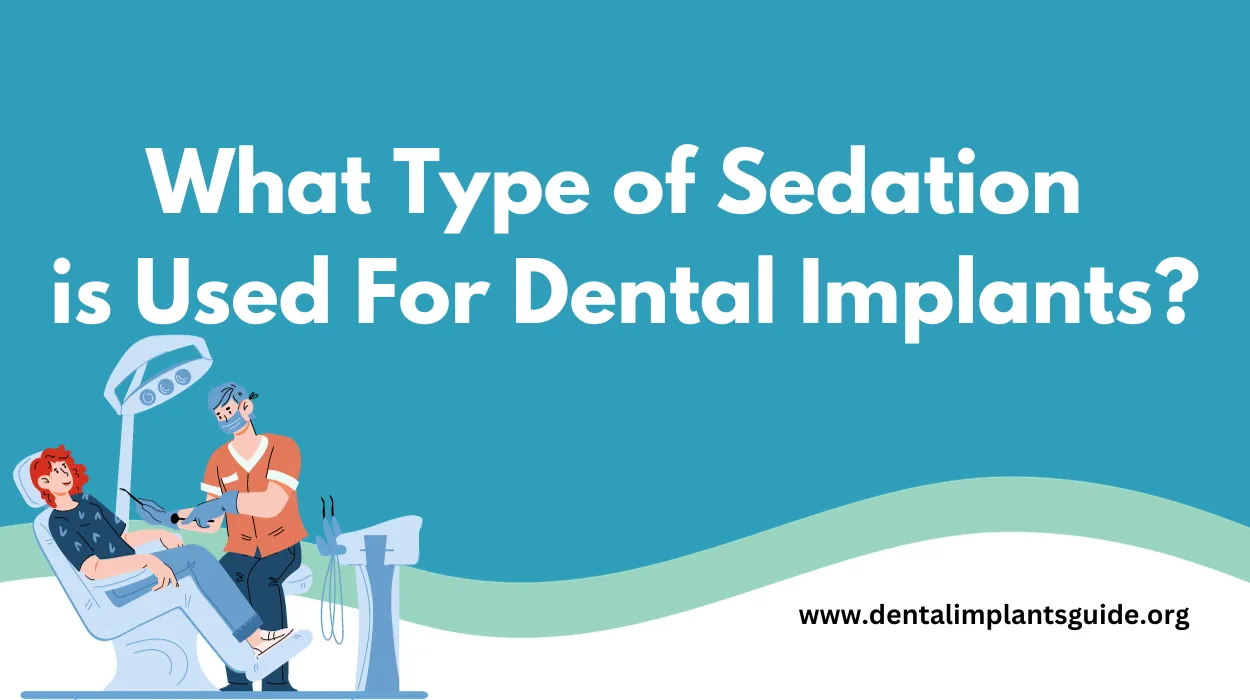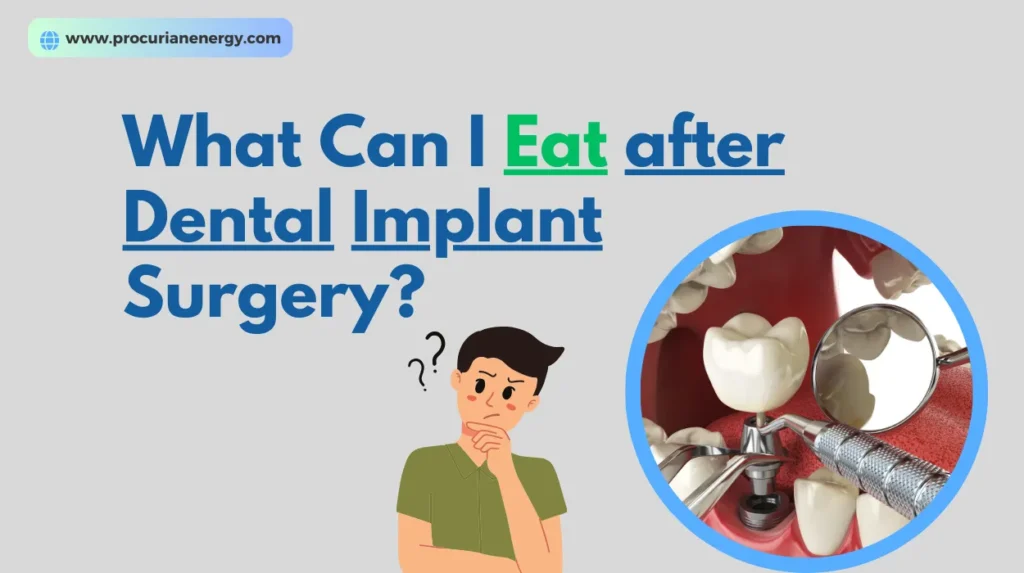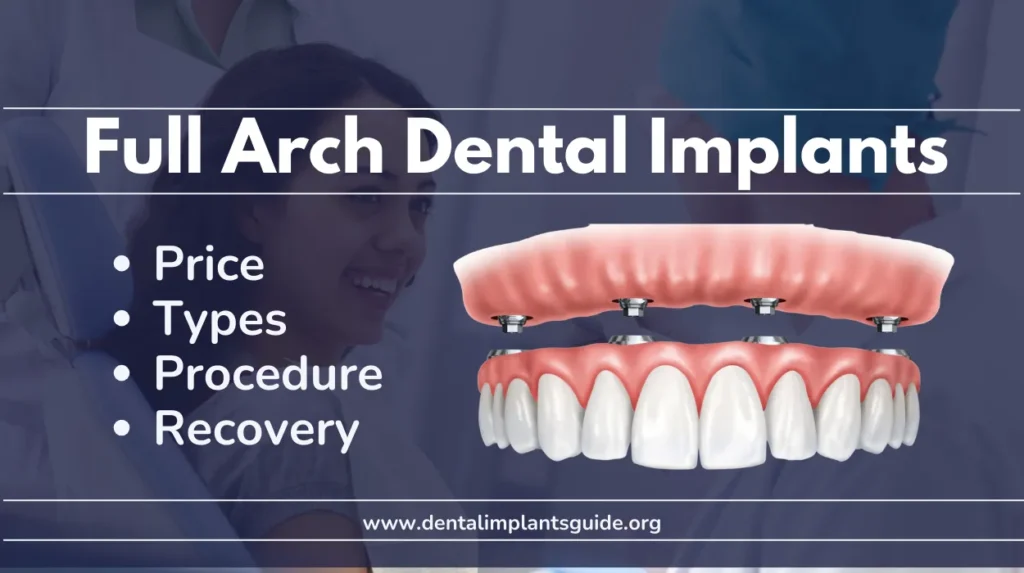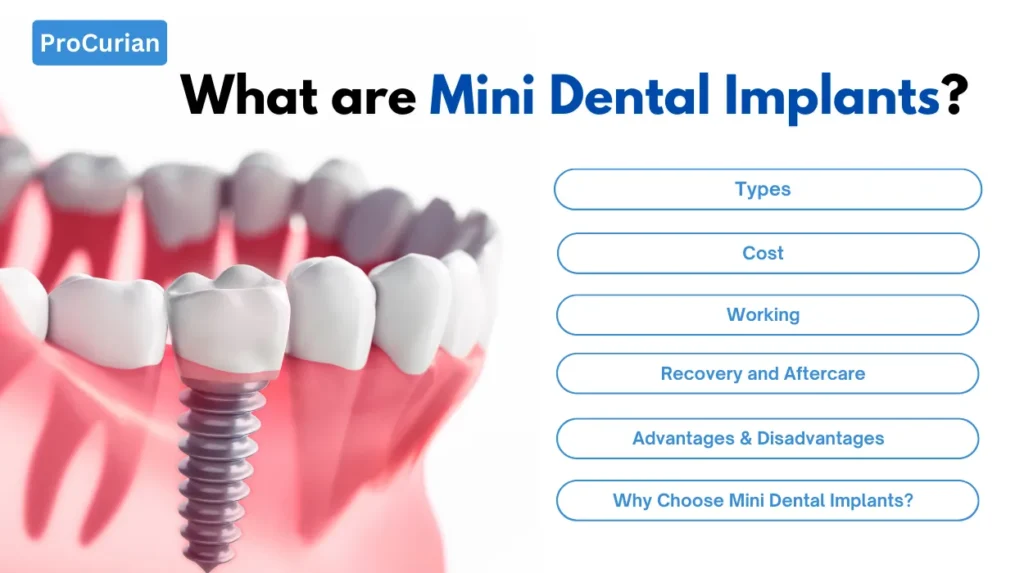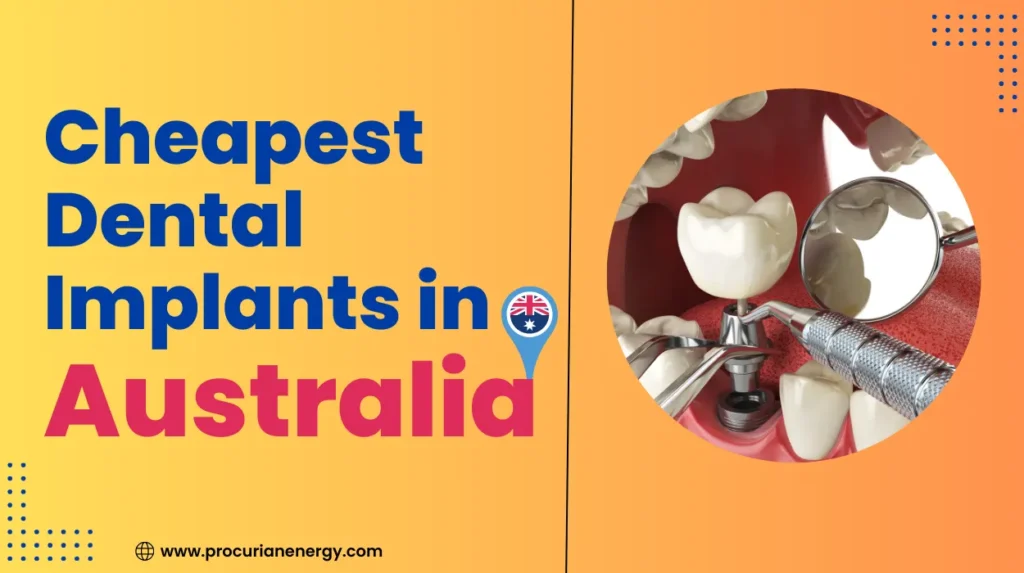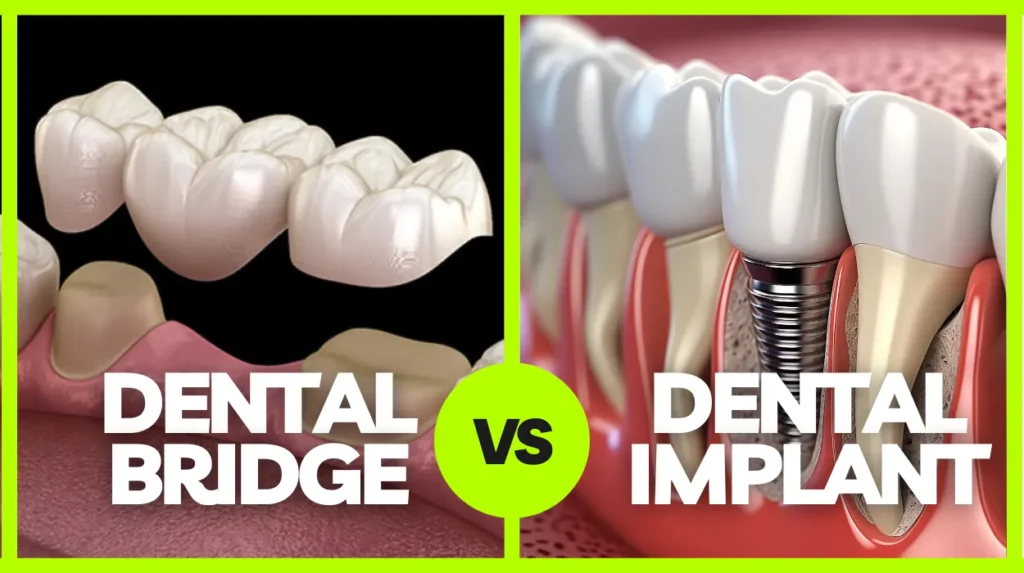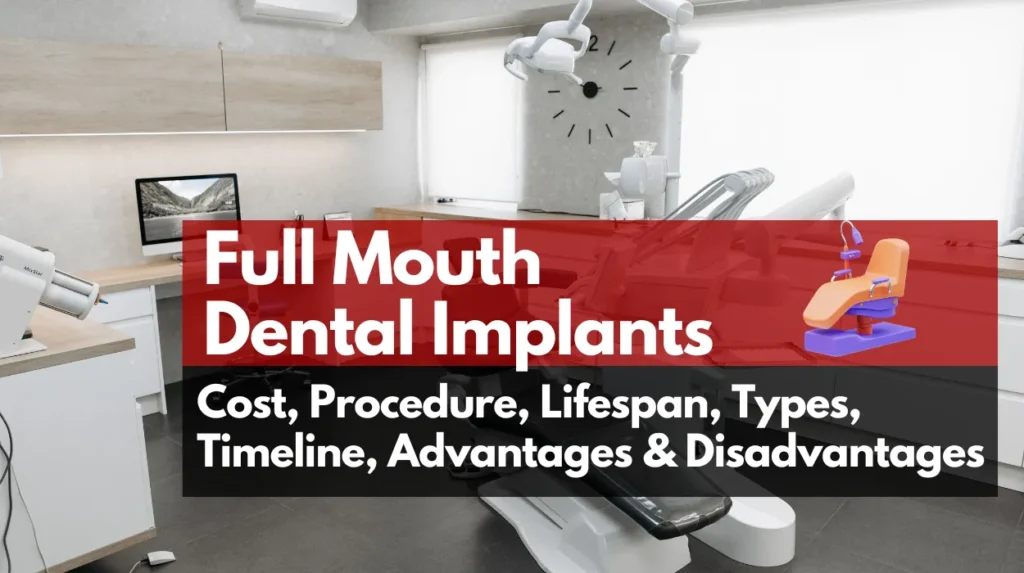
Getting dental implants can be a life-changing experience, but some people are afraid of dental procedures.
The good news is that dentists use various types of sedation to ensure your comfort throughout the procedure.
In this article, we’ll break down the various types of sedation used for dental implants, so you can make an informed decision about your oral health.
The Importance of Sedation
Dental implant surgery can be a complicated procedure that causes anxiety or discomfort in some people. This is where sedation comes into activity. Sedation allows you to relax, reduces pain, and has a more pleasant experience during surgery.
Types of Sedation for Dental Implants

Here are the different types of sedation commonly used for dental implant procedures:
| Sedation Type | Level of Sedation | Consciousness | Common Uses |
|---|---|---|---|
| Local Anesthesia | Minimal | Fully conscious | Simple implant cases |
| Oral Sedation | Mild to Moderate | Conscious but relaxed | Mild to moderate anxiety |
| IV Sedation | Moderate | Conscious but less aware | Moderate to high anxiety |
| General Anesthesia | Deep | Unconscious | Complex cases, extreme anxiety |
1. Local Anesthesia
What Is It? ➔ Local anesthesia is the mildest form of sedation. Your dentist will numb the specific area where the implant will be placed using an injection.
When Is It Used? ➔ Local anesthesia is typically used for straightforward implant cases and for patients who prefer minimal sedation.
2. Oral Sedation
What Is It? ➔ Oral sedation involves taking a prescribed sedative pill before the procedure. It helps you relax and might make you feel a bit drowsy.
When Is It Used? ➔ Oral sedation is suitable for patients with mild to moderate anxiety. It allows you to remain conscious but relaxed during the surgery.
3. Intravenous (IV) Sedation
What Is It? ➔ IV sedation involves administering sedative drugs through a vein. It induces a deeper state of relaxation and is often referred to as “twilight sedation.”
When Is It Used? ➔ IV sedation is suitable for patients with moderate to high anxiety levels. It allows you to be conscious but less aware of the procedure.
4. General Anesthesia
What Is It? ➔ General anesthesia is the deepest form of sedation. It puts you into a temporary unconscious state, and you won’t remember the surgery.
When Is It Used? ➔ General anesthesia is reserved for complex cases or patients with extreme anxiety. It’s typically administered by an anesthesiologist.
How to prepare for sedation?
There are a few things you can do to prepare for sedation for dental implant surgery:
Before sedation
➦ Inform your dentist about all of your current medications. This includes prescription and over-the-counter medications, as well as herbal supplements.
➦ Eat or drink nothing for at least six hours prior to the surgery. Water is included.
➦ Wear loose, comfortable clothing to the surgery.
➦ Arrange for someone to drive you home from the surgery.
Related Article ➥ Who is Responsible for Dental Implant Failure?
After sedation
After sedation, you will need to rest until the medication’s effects wear off. This could take a while.
You should also refrain from driving, operating heavy machinery, or making major decisions until you have fully recovered.
Pros and Cons of sedation
| Type of Sedation | Pros | Cons |
|---|---|---|
| Local Anesthesia | ⓵ Minimal risk of complications ⓶ Short recovery time ⓷ Low cost | ⓵ May not alleviate anxiety ⓶ Limited effectiveness for severe anxiety ⓷ Patient remains fully conscious |
| Oral Sedation | ⓵ Reduces anxiety and discomfort ⓶ Patient is conscious but relaxed ⓷ Suitable for mild to moderate anxiety | ⓵ Slower onset and longer recovery compared to IV sedation ⓶ Potential for side effects from medication ⓷ May not provide deep sedation for complex procedures |
| IV Sedation | ⓵ Precise control of sedation level ⓶ Deep relaxation and reduced awareness ⓷ Effective for moderate to severe anxiety | ⓵ Requires a trained anesthesiologist or dentist with specialized training ⓶ Higher cost compared to local anesthesia or oral sedation ⓷ Potential for side effects and complications if not administered by a qualified professional |
| General Anesthesia | ⓵ Complete unconsciousness during the procedure ⓶ No awareness of the procedure ⓷ Suitable for highly anxious or complex cases | ⓵ Highest level of risk and complications ⓶ Requires specialized equipment and personnel ⓷ Longer recovery time and higher cost |
Side effects of sedation
Side effects of sedation are:
- Nausea and vomiting
- Headache
- Sore throat
- Breathing problems
- Allergic reaction
Can you get a tooth implant without sedation?
If you’re thinking about getting dental implants without sedation, consider the following factors:
➥ The more complicated the surgery, the more likely you will require sedation.
➥ Sedation may be appropriate for you if you have a low pain tolerance.
➥ Sedation can help you relax and feel more comfortable if you are anxious about the surgery.
➥ Your dentist may recommend sedation if you have any medical conditions, such as heart disease or diabetes.
What is the safest dental sedation?
The safest dental sedation is nitrous oxide, also known as laughing gas. It is a mild sedative that is inhaled through a mask or nosepiece. Nitrous oxide quickly relaxes patients and reduces anxiety, and it wears off quickly after the procedure. Nitrous oxide is very safe and has few side effects.
How long does dental sedation last?
The length of time that dental sedation lasts depends on the type of sedation that is used.
| Type of sedation | Duration |
|---|---|
| Nitrous oxide (laughing gas) | 15-30 minutes |
| Oral sedation | 2-8 hours |
| Intravenous (IV) sedation | 2-4 hours |
Related Article ➥ How to Heal Faster After Dental Implants?
FAQs
What is dental sedation, and why is it used for implants?
Dental sedation is a way to help you feel comfortable and relaxed during a dental implant procedure. It’s used to reduce pain, anxiety, and discomfort.
How many types of dental sedation are there?
There are four main types of dental sedation: local anesthesia, oral sedation, IV sedation, and general anesthesia. Each has different levels of sedation.
Will I be awake during the procedure with all types of sedation?
No, it depends on the type of sedation. With local anesthesia and oral sedation, you’re usually awake but relaxed. With IV sedation and general anesthesia, you may be asleep or deeply relaxed.
Which is better oral sedation or IV sedation?
Oral sedation is better for minor dental procedures, while IV sedation is better for complex procedures.
Is dental IV sedation the same as anesthesia?
Dental IV sedation is not the same as anesthesia. Sedation makes you feel relaxed and drowsy, but you are still awake and can respond to commands. Anesthesia puts you into a deep sleep, and you are not aware of what is happening.
Is propofol used for dental implants?
Yes, propofol can be used for dental implants. It is a fast-acting sedative that can be used to put patients to sleep for the duration of the surgery.
What is the best pain relief after dental implants?
The best pain relief after dental implants is over-the-counter pain relievers, such as ibuprofen or acetaminophen.
Final Thoughts
Choosing the right type of sedation for your dental implant procedure is essential for a comfortable and successful experience. Whether you opt for local anesthesia, oral sedation, IV sedation, or general anesthesia.
Don’t hesitate to discuss your concerns and preferences with our team through comments section.
